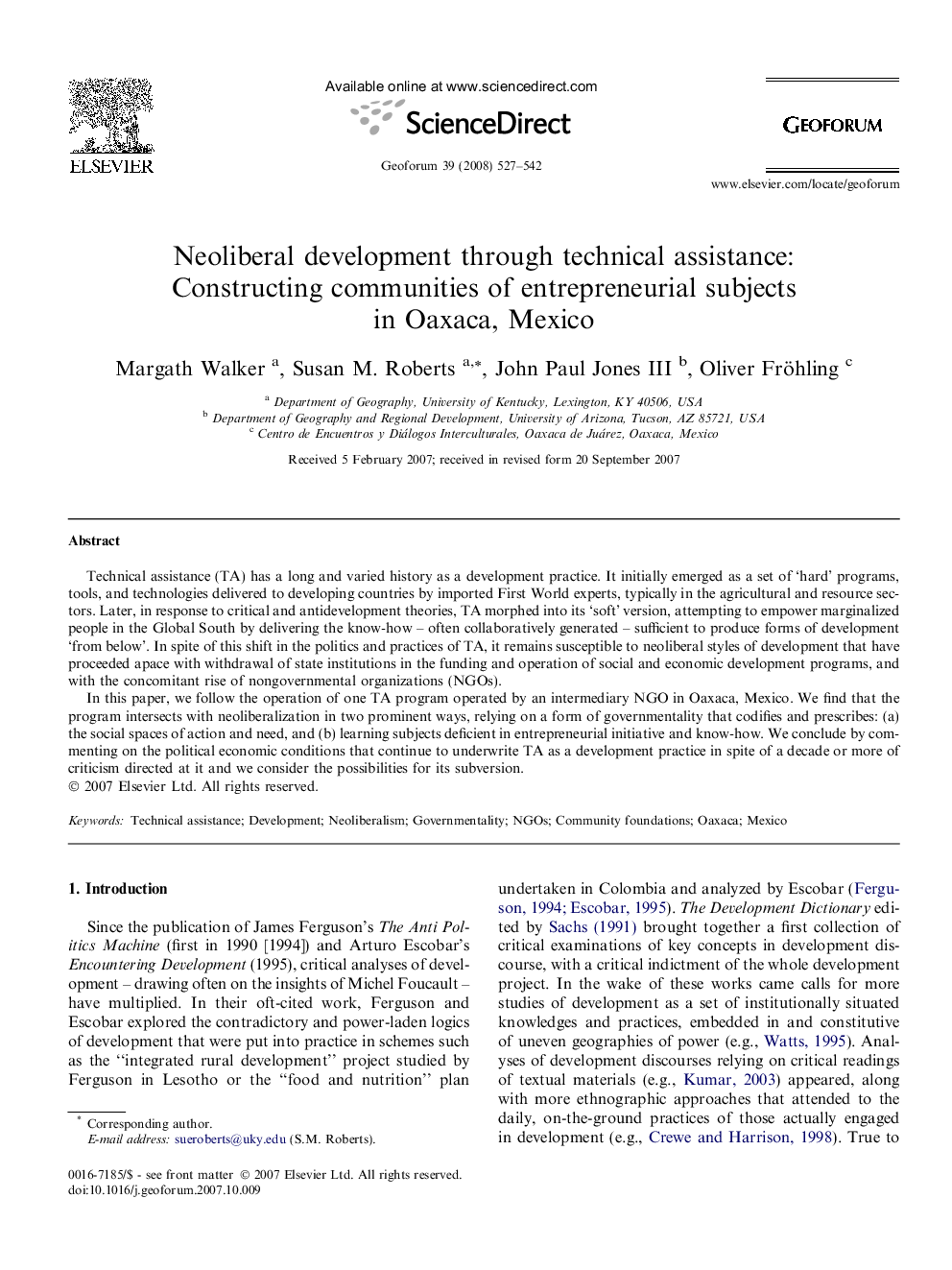| Article ID | Journal | Published Year | Pages | File Type |
|---|---|---|---|---|
| 5074995 | Geoforum | 2008 | 16 Pages |
Technical assistance (TA) has a long and varied history as a development practice. It initially emerged as a set of 'hard' programs, tools, and technologies delivered to developing countries by imported First World experts, typically in the agricultural and resource sectors. Later, in response to critical and antidevelopment theories, TA morphed into its 'soft' version, attempting to empower marginalized people in the Global South by delivering the know-how - often collaboratively generated - sufficient to produce forms of development 'from below'. In spite of this shift in the politics and practices of TA, it remains susceptible to neoliberal styles of development that have proceeded apace with withdrawal of state institutions in the funding and operation of social and economic development programs, and with the concomitant rise of nongovernmental organizations (NGOs).In this paper, we follow the operation of one TA program operated by an intermediary NGO in Oaxaca, Mexico. We find that the program intersects with neoliberalization in two prominent ways, relying on a form of governmentality that codifies and prescribes: (a) the social spaces of action and need, and (b) learning subjects deficient in entrepreneurial initiative and know-how. We conclude by commenting on the political economic conditions that continue to underwrite TA as a development practice in spite of a decade or more of criticism directed at it and we consider the possibilities for its subversion.
